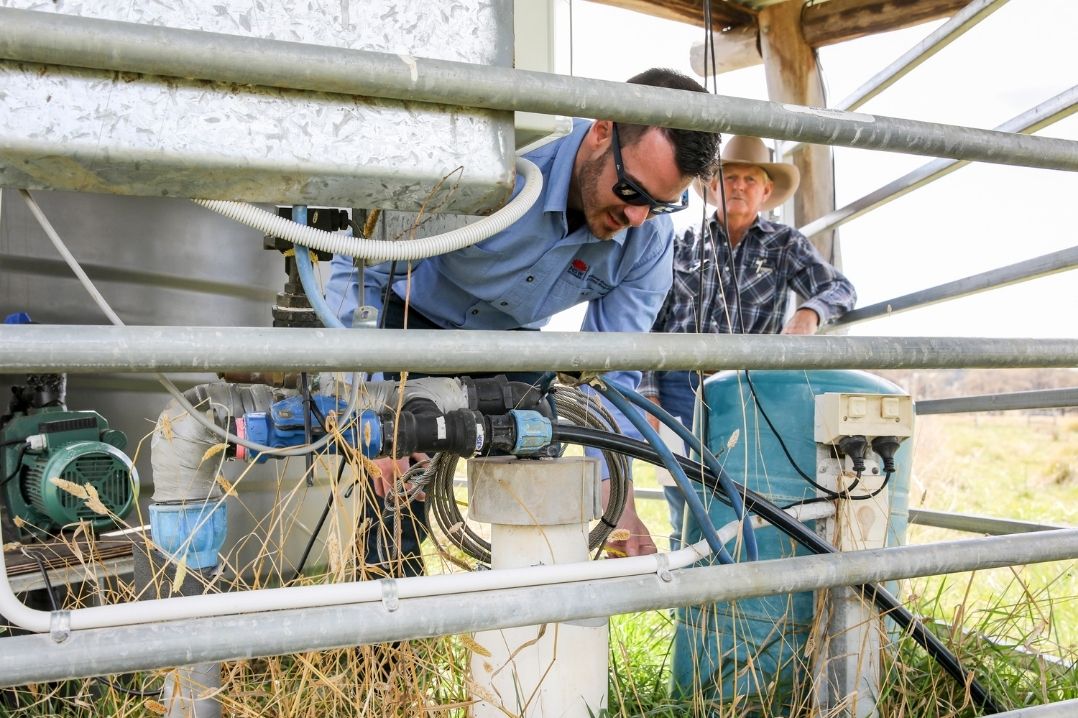Coast to Coast: Outreach officers helping on the Far North and South Coasts as drought takes hold
Supporting people to comply with NSW water laws is the focus for NRAR outreach officers doing inspections on the Far North and South Coast this spring.
The independent water regulator has already visited dozens of properties around Ballina, Lismore and Byron Bay Hinterland, including Dalwood, Lynwood, Gundurimba, Bangalow and Clunes. They plan to visit approximately 50 properties around Narooma, Corunna, Dalmeny, Wandella, and Yowrie, as well as along the coast in Merimbula, Tathra, Bermagui, Batemans Bay, Bega, and Eden
NRAR Director Education and Engagement, Keeley Reynolds, said officers were ready to answer questions and help water licence holders to manage their obligations ahead of a predicted hot, dry summer.
"We know significant parts of this region are either in drought, or, as in the case of Lismore, experiencing intense drought, so water management is on many people’s minds at the moment," Ms Reynolds said.
"Our officers can provide the right information about current water-take conditions and about non-urban metering deadlines for the coastal zone that come into effect at the end of 2024.
“Our Outreach Program checks some basic elements of water management on individual properties while also providing guidance people need to prepare for drier conditions,” Ms Reynolds said.
“We know the majority of people want to do the right thing, and we are here to help them get there.”
Ms Reynolds said when NRAR officers visited a property, they typically met with the landholder first and then checked such things as logbooks, the way works are constructed and how water was being used on the property.
“NRAR officers attempt to call first, but sometimes, when contact details are not current, we can’t do that. A face-to-face visit is also an opportunity to help them update their details,” she said.
The Bureau of Meteorology has confirmed that an El Niño climate event is underway, and this typically leads to reduced spring rainfall for eastern Australia. The long-range forecast for November to January indicates twice the chance of abnormally high temperatures and a high chance of below median rainfall.
"Water has been abundant recently but now we need to prepare for the changing conditions," Ms Reynolds said.
"NRAR is here to help make sure water is managed sustainably for communities, businesses, and the environment so everyone gets a fair share,” she said.
In the last six months, NRAR has conducted 33 investigations on the North Coast and 14 on the South Coast. The most common alleged offences relate to unlawful water works or dams, taking too much water, or non-compliant metering.
Only two enforcement actions have been taken on the South Coast, including a formal warning and a direction to either stop work or take other types of remedial action
